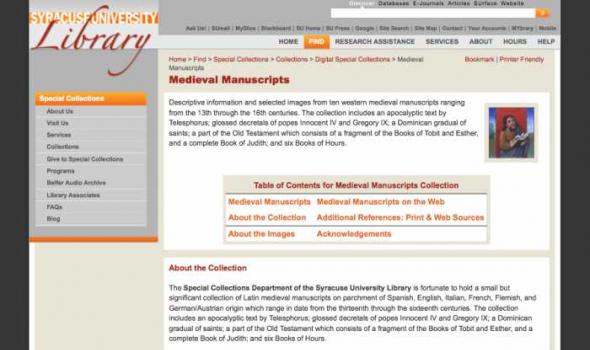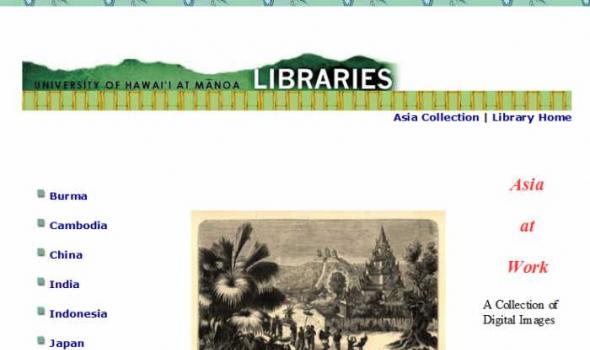Category: Literature & Poetry, Latin, United States
Results
Medieval Manuscripts Descriptive information and selected images from ten western medieval manuscripts ranging from the 13th through the 16th centuries. The collection includes an apocalyptic text by Telesphorus; glossed decretals of popes Innocent IV and Gregory IX; a Dominican gradual of saints; a part of the Old Testament which consists of a fragment of the Books of Tobit and Esther, and a complete Book of Judith; and six Books of Hours. About the Collection The Special Collections Department of the Syracuse University Library is fortunate to hold a small but significant collection of Latin medieval manuscripts on parchment of Spanish, English, Italian, French, Flemish, and German/Austrian origin which range in date from the thirteenth through the sixteenth centuries.
Medieval Islam Islamic cultures are among the most interesting, complex, and dynamic in the world. At the same time, they are among the least known in the West. From its dramatic rise in the seventh century A. D. to the present, Islamic civilization has covered a large part of the globe, incorporating many subcultures and languages into its orbit, and vigorously engaging the peoples around it. Medicine was a central part of medieval Islamic culture. Disease and health were of importance to rich and poor alike, as indeed they are in every civilization. Responding to circumstances of time and place, Islamic physicians and scholars developed a large and complex medical literature exploring and synthesizing the theory and practice of medicine.
Medicine in the Old World arose from many components: the classical Greek tradition, its Christian re-elaboration, the contributions of the Arabic World, and the unique medieval synthesis of them all. By examining significant pages and illuminations from manuscripts and early printed books of the National Library of Medicine, one can see how these cultures contributed to the creation of medical knowledge in Europe.
These pages are a journey through time and space, as medical knowledge moved around and across the Mediterranean Sea. Mare nostrum—Our Sea—divided societies into several groups, but it could be crossed, making cultural contact, trade, and the exchange of ideas possible.
















